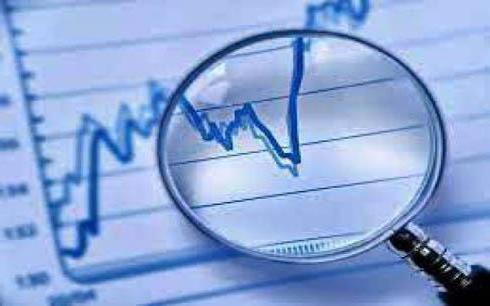Any financial sector has become an important component of the modern economy. Why is he so important? What role does it play in the economic and economic life of the country? What risks can arise if everything is left to chance?
general information
Let's figure out the word finance itself. This word is of Latin origin and was used to indicate payment. For the first time in its modern meaning, it began to be used in the thirteenth century in Italy, where there were many large centers of trade, banking was born and monetary settlements were actively conducted. From that moment, the term "finance" has gained international distribution.

Now it is understood as a general system of monetary relations and the formation of payment resources that are used by the state (as well as its population) to ensure their functions. But one should not think that the organization of the financial sector of the economy was carried out in the thirteenth century and since then nothing has changed.
Current state of affairs
In the presence of commodity-money relations, it is difficult to imagine the functioning of any economic structure without an adequately organized cash flow that constantly circulates between the state, production structures, different sectors of the population, regions and even various countries! They contain a reflection of the processes of real life of the whole society, communication and relations, both between individual citizens and legal entities.

The financial market sectors allow the state represented by the government to carry out its managerial functions, as well as provide restrictions, control and audit of industries and various structures. Moreover, they act as indicators of the growth of the national economy, welfare, and also as a tool to eliminate negative phenomena. At the moment, two main areas can be distinguished: fiscal (fiscal) and monetary (monetary). What are they?
Fiscal direction
It is formed from the budget and tax systems. It provides for the collection and redistribution of payments that are mandatory for all economic entities that operate in the territory of a particular country. Moreover, there are both direct and indirect taxes, with a significant predominance of the latter.

Depending on the policy chosen, they are proportional, regressive and progressive. The budget system combines the funds of the central government, as well as regional and local authorities. Taxes are collected just to ensure it. Particular attention must be paid to the balance of incoming and outgoing cash flows.
Monetary direction
Combines the monetary and credit system. What are they? Under the monetary system is meant a form of organization of the process of circulation of funds in the country. Extreme attention is paid to volume, structure and dynamics. A special role here is played by monetary aggregates, as well as the size of the base. Separately, we can also mention inflation, although it also refers to the previous direction as a hidden tax on the poor.

The credit system means all the relationships that arise between the borrower and lenders. Within the framework of the article, it is of considerable interest. For example, now there is hardly a person who knows nothing about the banking and financial sector and has not met with him.In the credit system, its scale, rates, scope of activity, concentration of assets, the ratio of state, private and foreign capital are important.
Features
All of the above and creates the financial and economic sector of the country. It should be noted that in many cases, the separation boundaries are rather arbitrary. As an example, we can once again recall inflation as a form of indirect tax.

On the one hand, the fact of her presence allows to increase the taxable base. And at the same time, the state can save on payments to state employees that they receive a fixed salary, simply without increasing it. The financial sector is based on key points:
I. The redistribution of money between those who have their excess and deficit, through investment, as well as long-term, medium-term and short-term loans.
II. The presence of special institutions that are engaged in this activity. These include the central bank, credit financial institutions, insurance companies, pension funds, exchanges, investment institutions.
Now the financial sector is an intermediary in the transfer of monetary resources between other participants in economic interaction. It acts as a cash center, which, with the help of various tools, provides borrowers with the opportunity to gain access to funds, and protect first-tier lenders from inflation and increase their capital.
Interaction with the state
The development of the financial sector is not possible without some influence from government. The state creates a strong legislative and regulatory framework, and also monitors its implementation. It should be noted that the financial sector does not have clear boundaries due to the fact that it covers the movement of all funds, and also offers its services in managing them. However, much depends on the existing tools of the legislative framework. With proper development and use, the financial sector will deepen, strengthen and expand, increasing the number and nature of existing opportunities, interconnection and territorial coverage. Over time, it involves more and more people. So, the financial sector organizations themselves are directly interested in improving legislation and relations within the country.
How to develop?
Issues of improvement and improvement are of interest to governments of all countries. In the case of the financial sector, there is a very complex problem - on the one hand, there is a tendency towards a decrease in regulation. But you should not loosen your grip too much, as this allows fraudsters to feel more comfortable.

We should not forget that banks are used both to launder stolen funds and to conceal illegal income. Therefore, the state has to keep them under its vigilant control, which, alas, does not always help prevent crimes. Under such conditions, one can more or less move in only one direction - along the path of computerization. What can be done here?
Transferring the activities of the financial sector into virtual space
The advent of computers has changed our world. At first, these were large machines that were used exclusively for data processing, where extremely accurate calculus was required. But with the development and improvement, computers began to enter other sectors of the economy. Finances were no exception. Now it’s hard to imagine a full-fledged department where there is no computer. Many institutions also transfer their activities to the plane of virtual space. So, having your own account, now you can remotely open a deposit, get a loan, pay utility bills and even more - book a rest in a restaurant, rent a car, provide yourself with insurance.And for this you do not need to be the owner of the computer. It is enough to have a telephone and the Internet.
Many banks have already noticed this trend and offer their customers branded applications designed to ensure the convenience of using a mobile device and the security of all transactions. Now more than ever it is easy to have access to the bank in your pocket. And given various advanced developments, such as the possibility of using smartphones for payment and settlements, we can confidently say that this is not all, and we will see a large number of interesting things.
Conclusion
The financial sector is a very interesting topic. Alas, one article is not enough to get a complete picture of it. To do this, you need a whole book. And to feel in this environment, like a fish in water, you need experience and practice. Moreover, you can get some knowledge by familiarizing yourself with theoretical works.

With independent steps, there is a chance to learn how to act independently and at the same time successfully. The only question is whether there is enough information received here about someone else's miscalculations, or will you have to make your own? After all, one should not forget that, although the financial sector is considered the most attractive in terms of earning potential, it is also the most risky.